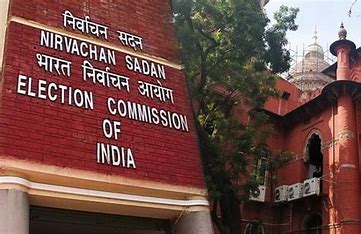Artificial intelligence could potentially be a deciding factor in the 2024 polls — like social media was in the 2014 polls.

In the upcoming 2024 Lok Sabha elections, artificial intelligence (AI) is playing a big role. The Bharatiya Janata Party (BJP), led by Prime Minister Narendra Modi, is leading the way in using this technology. PM Modi is known for being tech-savvy, and the BJP is using AI to translate his speeches into eight different languages, making them accessible to more people on social media. Previously, during an event in Varanasi in December 2023, PM Modi used AI to translate his speech from Hindi to Tamil in real-time.
Certainly! In the realm of Indian politics, both the Bharatiya Janata Party (BJP) and the Indian National Congress (Congress) are leveraging artificial intelligence (AI) to bolster their election campaigns. However, observations from experts indicate that the BJP has embraced AI more comprehensively compared to its counterparts.
One notable aspect of the BJP’s AI-driven approach is its strategic utilization of language translation technology. Specifically, the BJP has taken steps to translate speeches into eight different languages. This strategic move is aimed at expanding the party’s electoral outreach across various linguistic regions, particularly in states such as Maharashtra, Punjab, West Bengal, Odisha, Karnataka, Kerala, Tamil Nadu, and Telangana. These states collectively hold significant electoral weight, accounting for 228 seats in the Lok Sabha.
Vinay Deshpande, the chief product officer at Rajneethi, a political management consulting firm, sheds light on the transformative impact of AI in Indian elections. Deshpande highlights that AI plays a pivotal role throughout the election cycle, from the initial stages of voter identification to the intricacies of content creation and delivery. By harnessing AI capabilities, political parties are able to adopt a more data-driven, targeted, and efficient approach to their campaign strategies, thus setting new benchmarks for political campaigning in the digital age.
One of the key advantages offered by AI in election campaigns is the ability to precisely target voters. This is achieved through the analysis of extensive datasets, including demographic information, social media engagement metrics, and online behavioral patterns. These insights serve as the foundation for crafting personalized campaign content, advertisements, and messages tailored to resonate with the unique interests and concerns of individual voters. Unlike traditional mass marketing techniques, AI-powered micro-targeting enables political parties to exert a more significant influence on voter behavior by delivering highly relevant and persuasive communication directly to targeted segments of the electorate.
In essence, the BJP’s adoption of AI technology in its election strategies underscores the party’s commitment to embracing innovation and leveraging advanced tools to enhance its electoral prospects. By harnessing the power of AI-driven analytics and targeting capabilities, the BJP aims to optimize its campaign outreach efforts and effectively connect with voters across diverse linguistic and demographic landscapes.
AI is becoming part of elections. It can help with tasks like data entry and analyzing voter behavior. For example, it can spot trends to help parties plan better campaigns. It can also give feedback on how well a campaign is doing, so parties can adjust their plans.
In some cases, AI is being used to bring back past leaders. For instance, supporters of M Karunanidhi saw a computer-generated version of him at a book launch. This got a good reaction, so other parties might try similar tricks with leaders like Jayalalitha.
But there’s a downside. During elections in Telangana, a short video went viral, supposedly showing a party leader asking people to vote for their opponent. Right now, there aren’t specific laws to deal with fake videos made with AI. Laws that might apply are the Indian Penal Code, the Information Technology Act, and some rules about digital media.
People worry that AI could be used to spread both true and fake news during elections. They’re concerned it could mess with the voting process and fairness. Experts say people should be aware of AI and check facts before sharing anything online.
To tackle this problem, the Information Technology Ministry advised companies like Google and OpenAI to be careful with AI. In India, where there are many languages and dialects, it’s even harder to control misleading content online.
Around the world, there’s no international law about AI and its use in elections. In 2024, there are over 50 elections planned globally, with billions of eligible voters. The United Nations calls misuse of AI a big worry. In Pakistan’s recent elections, AI was used to mimic the voice of a leader who was in jail. But in Bangladesh, opposition parties claimed pro-government groups used AI to spread fake videos targeting them.
It’s tough to catch the people behind AI mischief. This blur between real and fake is the scariest part of AI’s role in elections.